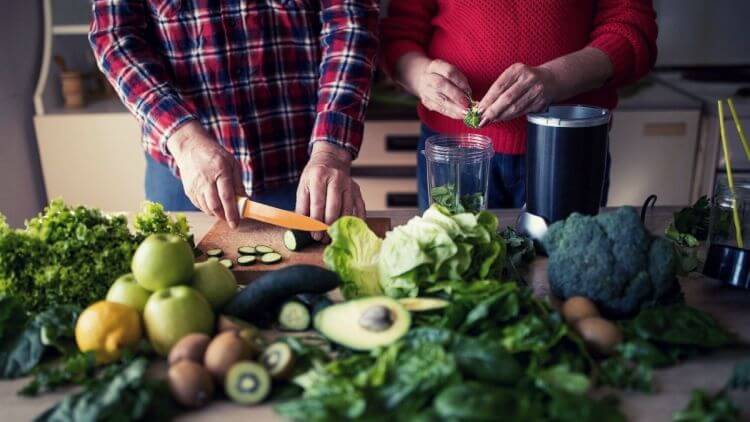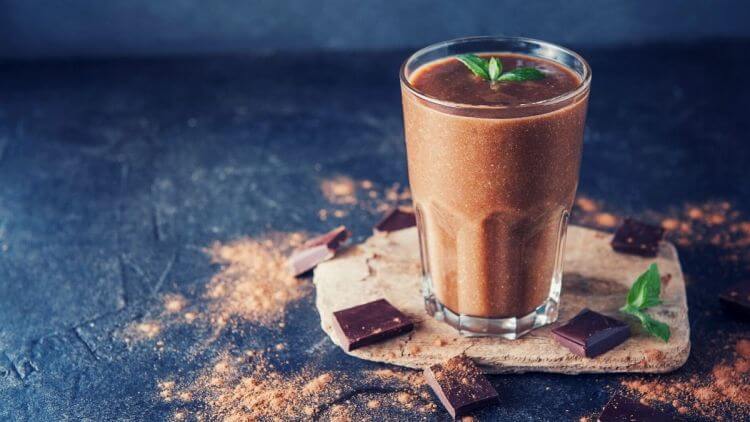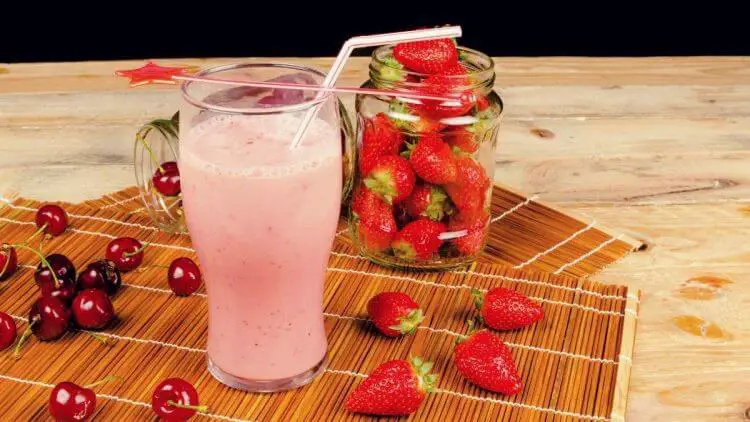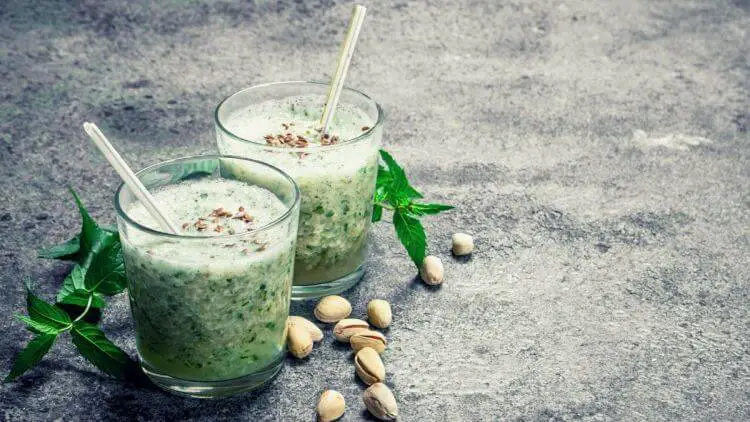Smoothies for seniors are great because they are not only tasty, but they can be handled as a food for just about everyone. The only ones that have difficulty with them are those that have problems with swallowing. However, those who normally have teeth problems can handle smoothies perfectly. They are essentially like milk shakes in terms of consistency.
You can also make them in different ways, weight gainer shakes or weight loss shakes. But smoothies are often made incorrectly. ‘Incorrectly’ means made with too much fat, too much sugar, too many carbohydrates, or not enough protein. Even some of the breakfast smoothies for seniors recipes you see online are simply not put together properly.
Check out these examples of how a well-intentioned smoothie can go wrong:
| Mistake When Making the Smoothie | Why It’s a Mistake |
|---|---|
| A whole avocado is used. | One avocado can be anywhere from 27-35+ grams fat and 250 to 320 calories. Most people don’t want to gain weight with smoothies. This amount of fat is often the total allowed for those on a diet for a day. |
| A whole banana, berries and sweetener is added (plus yogurt sometimes) | Too much carbohydrate in one smoothie will often spike blood sugar and then make it rapidly fall one and a half hours later. |
| Avocado, chia seeds, sunflower seeds or almonds (or almond butter) are in the recipe. | Too many fats are in the recipe. This makes good fat become bad fat because of the oxidation process, which creates free radicals. |
| Flavored Greek yogurt, sugar, and sweetened dried fruits are in the recipe. | Too much sugar has been added to the recipe. |
| Flavored acai berry (frozen), pine-apple, fruit, and maybe even dairy | Too many carbohydrates and possibly too much sugar |
| Fruit and fat used for the smoothie. | Not enough protein is added. |
| Fruit, skim milk dairy (1/4 c), chia, coconut, avocado, pomegranate seeds, peanut butter, and chocolate in the recipe. | Not enough protein added. |
Review of the Macronutrients
Smoothies can be used as a meal replacement for some people, or as part of a high calorie breakfast for those that need that. Regardless, when you create a smoothie, you want it to be a mini meal, one with protein, fat and carbohydrate together. If any of these macronutrients are missing, then you will feel either a crash of blood sugar within a few hours or not hungry for 6 hours or more (because of too much fat).
Just to review, protein foods would include yogurt, kefir milk, protein powders, and egg. Although vegetables and grains contain proteins, they are usually missing some amino acids and thus not complete. This is why we don’t count them as a protein source for smoothies.
Carbohydrate foods include all fruits, vegetables (especially starchy ones), some nuts such as pistachios and cashews, and sugars such as maple syrup, cane sugar, molasses, honey, or other forms of sugar. Dairy products also contain carbohydrates.
Fat foods include avocado, all nuts and seeds, sour cream, oils of any kind, butter (not usually in smoothies), and all nut butters. MCT oil is also a fat.
Should Seniors Be Adding Sweeteners to Smoothies?
One of the questions that needs to be answered is whether or not sweeteners should be added to breakfast smoothies for seniors.
There are a few things to be considered:
- Covid and Taste Distortions
If the senior citizen (or another person) had Covid, they may have been left with a distorted sense of taste. Many people are reporting that Covid left them with appetite loss because foods don’t taste like they should anymore, or worse yet, they taste bad. Some have even stated that a beefsteak smells so rancid they can’t even bear to touch it. It has come off their menus. Thus, some ingredients in smoothies may cause a very negative reaction to the senior and they could refuse it altogether.
- Common Zinc Deficiencies
Zinc deficiency is common in the elderly, and this leads to appetite loss and distorted sense of taste and smell. Thus, smoothies won’t necessarily taste as they would to someone without a zinc deficiency.
- Sugar Linked to Degenerative Diseases
Sugar and other sweeteners can harm the body and bring on progressive changes of degenerative diseases. What this means is that the more sugar you have in your diet, the quicker the onset of heart attack, diabetes, metabolic changes that are negative such as high triglycerides and high cholesterol, and high blood pressure.
Sugar causes proteins in every organ to be dysfunctional, and that means that the organ will not be operating at 100%. Instead, it may only operate at 75% – and then because the person has diabetes or another known degenerative disease, there is already a 25-30% loss of function.
Sugar causes glycation in the body; this is how the dysfunction starts. The glycation causes a binding to the cells to render them dysfunctional. Once dysfunctional, they cannot return to how they were before.
- Sugar is Addictive
Sugar causes negative changes in the brain and sets up an addictive cycle. It’s a myth that anyone can eat sugar in moderation. The physiological response in the body is that sugar sets up a situation where the person wants to eat more and more of it. They don’t feel satisfied until they get more and more sugar – and finally they hit a point where they see they are addicted.
The best strategy is to NOT use sugar at all – and to be cognizant of foods such as yogurts which may have sugar added to them.
There are alternative sugars that are helpful – monkfruit (make sure there is nothing artificial added to it), stevia (will lower the blood sugar level; a good thing for diabetics but they must monitor their blood sugar more often), and molasses. Molasses contains all the vitamins and minerals that the sugar manufacturers threw away.
All these vitamins and minerals are the ones that sugary foods are ‘looking for’ in your body when you eat them.When adding monkfruit or stevia, only a very small amount is needed to sweeten a food recipe. With molasses, as little as ½ teaspoon may be enough to sweeten a smoothie recipe and at the same time provide extra B vitamins, iron, calcium and other minerals.
What Other Things Can Go in Smoothies for Seniors?
If you are creating a smoothie for one or more seniors, you will want to pack nutrients into that smoothie. However, this must be done with wisdom. If someone is very malnourished, giving a lot of nutrients at one time or even in the course of a day becomes harmful. The body has shut down and isn’t ready to handle all the nutrients coming in. If this happens, the person may become sickened, and even experience headaches, nausea, and vomiting.
Adding small amounts of nutrients is helpful though. For example, you could add any of the following to the recipe:
| 1/8 teaspoon spirulina powder | good for vitamin B12 and detox from the chlorophyll inside the spirulina |
| ½ teaspoon green powder made of green vegetables | good for B vitamins and strengthening the body |
| ½ teaspoon red fruits and berries powder | good for cleansing the body and invigorating it |
| 1 teaspoon bee pollen | a good protein addition but not for those allergic to pollens |
| 1 tablespoon lecithin | good for cleansing plaque from the arteries |
| ½ teaspoon brewers or nutritional yeast | good for B vitamins |
| ½ teaspoon MCT oil powder | good for getting the body to start breaking down fat |
| 1 tablespoon fiber | good for constipation and keeping the body regular |
All of these will help seniors start to feel better and regain health but it will always take time. It won’t occur overnight.
The amounts listed above may be doubled within 7 to 10 days with the exception of fiber. After the first 10 days, the green powder and red powder may be raised up to a heaping tablespoon each. The bee pollen may be raised to 1 tablespoon. The lecithin may be raised to 2 tablespoons. MCT oil powder may be raised to the amount listed on the label. Fiber is generally kept at 1 tablespoon daily because more fiber will potentially rehydrate within the gut causing a blockage.
3 Recipes that Make Great Breakfast Smoothies for Seniors
With all this in mind, let’s review some recipes.
Chocolate Dream
Yield: 2 servings
Ingredients
¼ small avocado
1 tablespoon cacao powder or 1 inch square dark chocolate
½ cup raspberries
½ cup Greek yogurt
1/8 teaspoon spirulina
1 teaspoon bee pollen
1 tablespoon sunflower lecithin
1 tablespoon green powder
1 tablespoon red powder
1 tablespoon acacia fiber
1 cup ice cubes
Directions: Blend avocado with raspberries and yogurt. Then add powders and ice cubes and blend. Adjust to taste. Serve.
Fruity in Hawaii
Yield: 2 servings
Ingredients
½ cup pineapple
1 cup strawberries
1 cup coconut water
1 tablespoon MCT powder or oil
½ cup coconut shreds (no sugar)
½ cup almond milk or yogurt
1 teaspoon vanilla extract
1 teaspoon red fruit powder
1 tablespoon acacia fiber
1-1/2 cups ice cubes
Directions: Blend pineapple, strawberries and milk or yogurt. Then add the rest of the ingredients. Blend. Adjust to taste. Serve.
Nutty and Loving It
Yield: 2 servings
Ingredients
2 tablespoons almond butter
1 handful pistachios or peanuts
4 Brazil nuts (for selenium)
½ cup unsweetened coconut shreds
½ cup coconut water
2/3 cup almond milk or yogurt
1 cup strawberries or raspberries
1 small pinch of monkfruit or stevia
1 tablespoon MCT oil
1 small handful mint leaves (optional)
2 one-inch squares dark chocolate (optional)
1 tablespoon green powder
1 tablespoon red powder
1 teaspoon nutritional yeast
1 heaping tablespoon psyllium fiber
1 cup or more of ice
Directions: Blend almond butter with almond milk/yogurt, other nuts, berries, and coconut water. Then add oil and powders and blend again. Finally add ice. Serve.
Make it your goal to add nutrient powders to your smoothies to give them more nutritional density. Adding a smoothie to your regular menu in times where you need food on the run and can’t make a complete meal is an excellent way to always get in the nutrients your body wants and needs.
It’s also helpful to keep a journal of your smoothies. This way you will always be able to reproduce your best-tasting recipes. And who knows – maybe you will eventually write a cookbook one day! What a great legacy to leave to your family!





